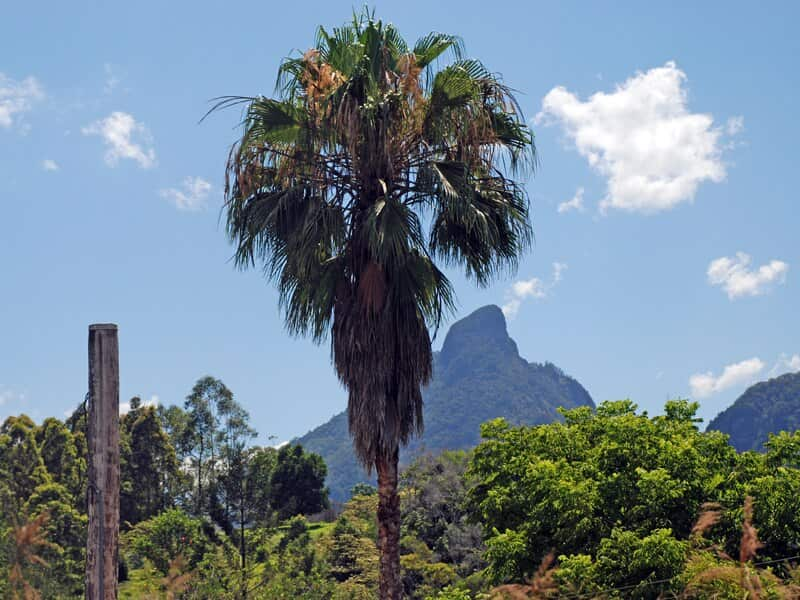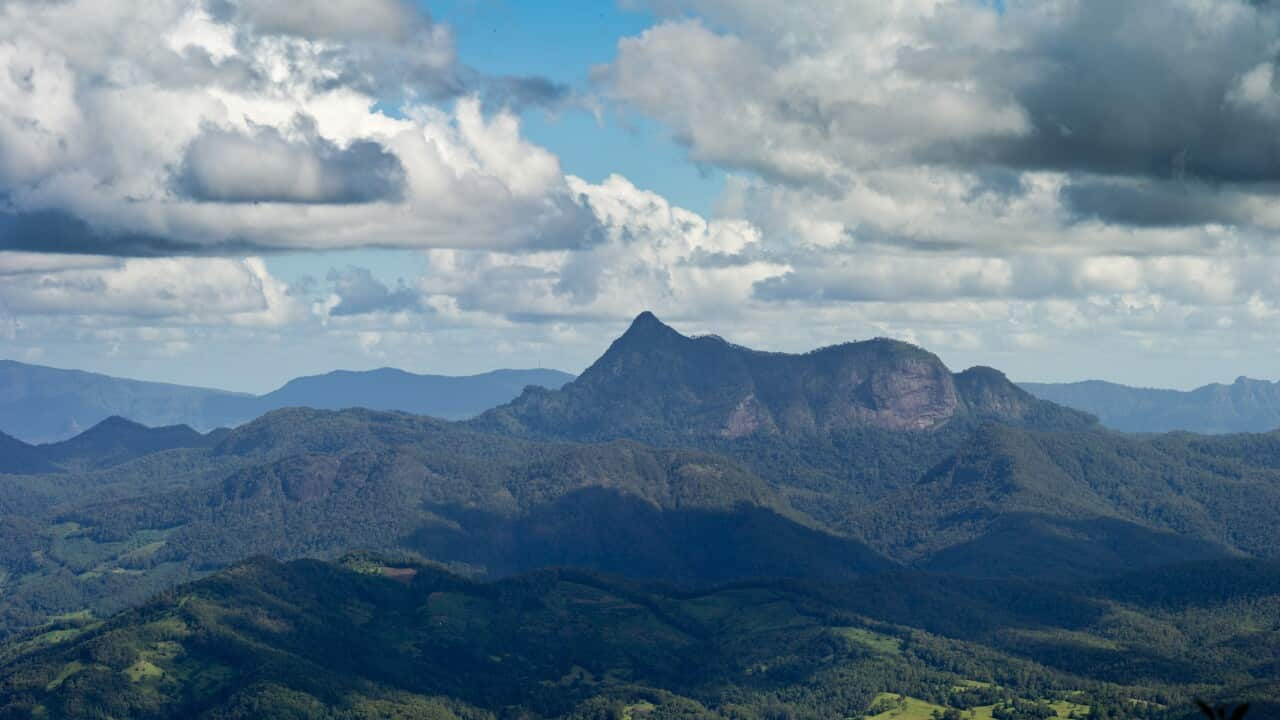The New South Wales government has handed a collection of Aboriginal groups and families responsibility for a decision on the future of a walking track in the state's north.
The Wollumbin National Park summit trek has been closed since the advent of COVID-19, but before the pandemic was a popular tourist destination for domestic and international travellers.
The landmark, also known as Mount Warning, has long been a contentious site.
The Wollumbin Consultative Group (WCG), representing cultural stakeholders, has said Wollumbin is of the "highest significance as a sacred ceremonial and cultural complex that is linked to traditional law and custom".
"Wollumbin is interconnected to a broader cultural and spiritual landscape that includes creation, dreaming stories and men's initiation sites of deep antiquity," the group said in a statement.
Minister for Environment James Griffin said the move is the first step towards joint management between custodians and the National Parks and Wildlife Service.
“We’re committed to putting Aboriginal land management and stewardship at the heart of our efforts to conserve our precious environment and care for Country, which is why any future decisions about Wollumbin will be guided by Aboriginal custodians," said Mr Griffin in a statement.
Allegations of passing the buck
Before the pandemic, more than 100,000 people would climb the summit of Wollumbin each year, despite ongoing concerns from traditional custodians.
The government has established a Memorandum of Understanding with the Wollumbin Consultative Group which will guide the future of the park.
Visits to National Parks represent one of the largest economic contributors to the region. The possibility of the summit's closure has sparked comparisons to the cessation of Uluru walking visits in 2019.
Tweed Shire Council Mayor Chris Cherry has said any closure of Wollumbin should happen in a similar manner, namely a process of transition to help local operators cope.

She also accused the government of passing the buck.
"It's an announcement where the minister hasn't wanted to take responsibility for whatever happens in the future, and I don't think that's good form.
"If a decision has been made then I think the minister should stand by that and not put it on the Aboriginal community to bear the brunt of that," she said.
In a statement, the WCG said their focus was on protecting the significant site.
"We have a responsibility for caring for Country, our environment, plants, animals, water, earth, and sky.
"As the oldest living culture in the world, we are sharing our cultural knowledge and entrusting this knowledge with the broader community so that our values, tradition, and law are respected, understood and acknowledged.”

